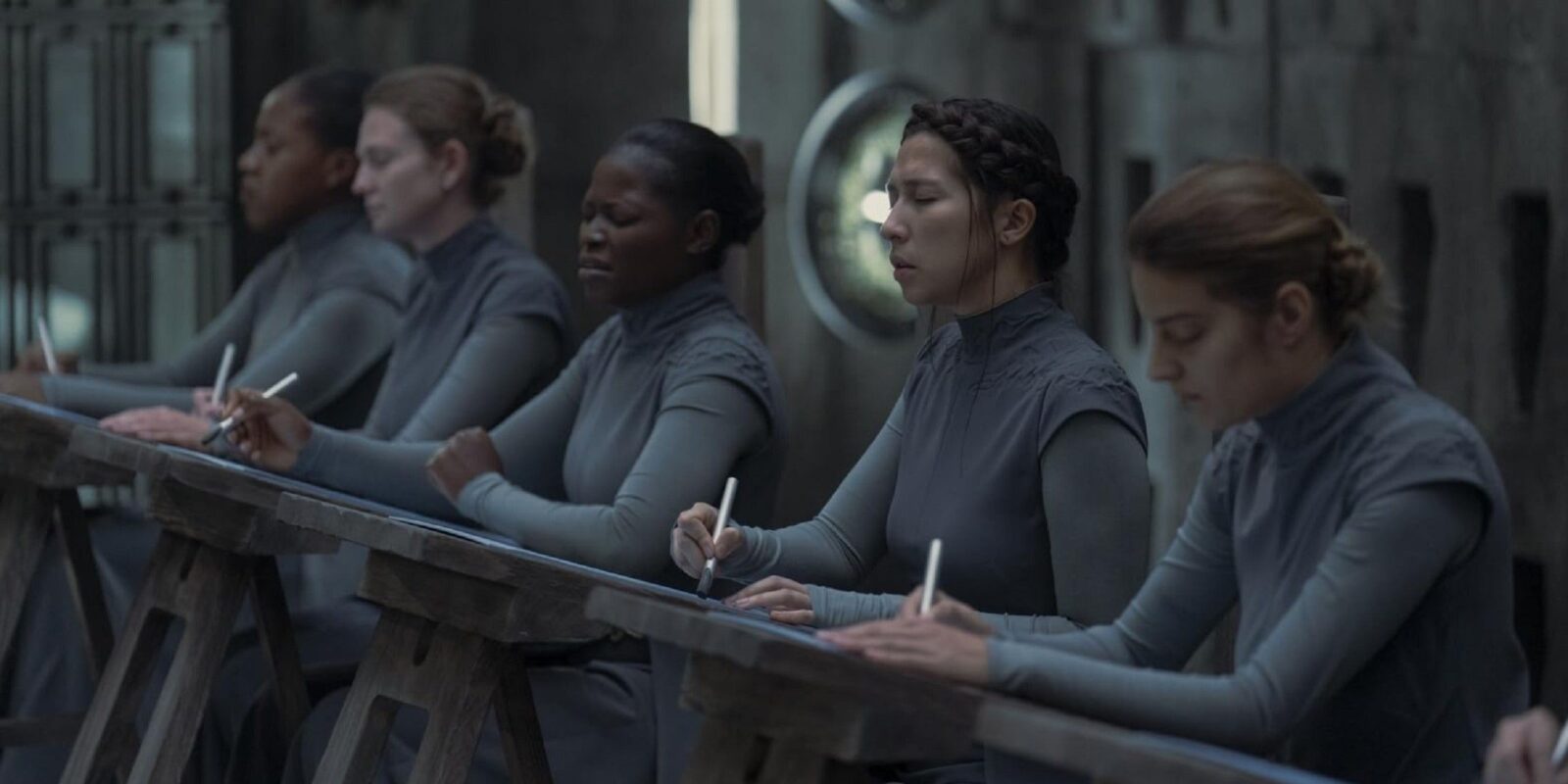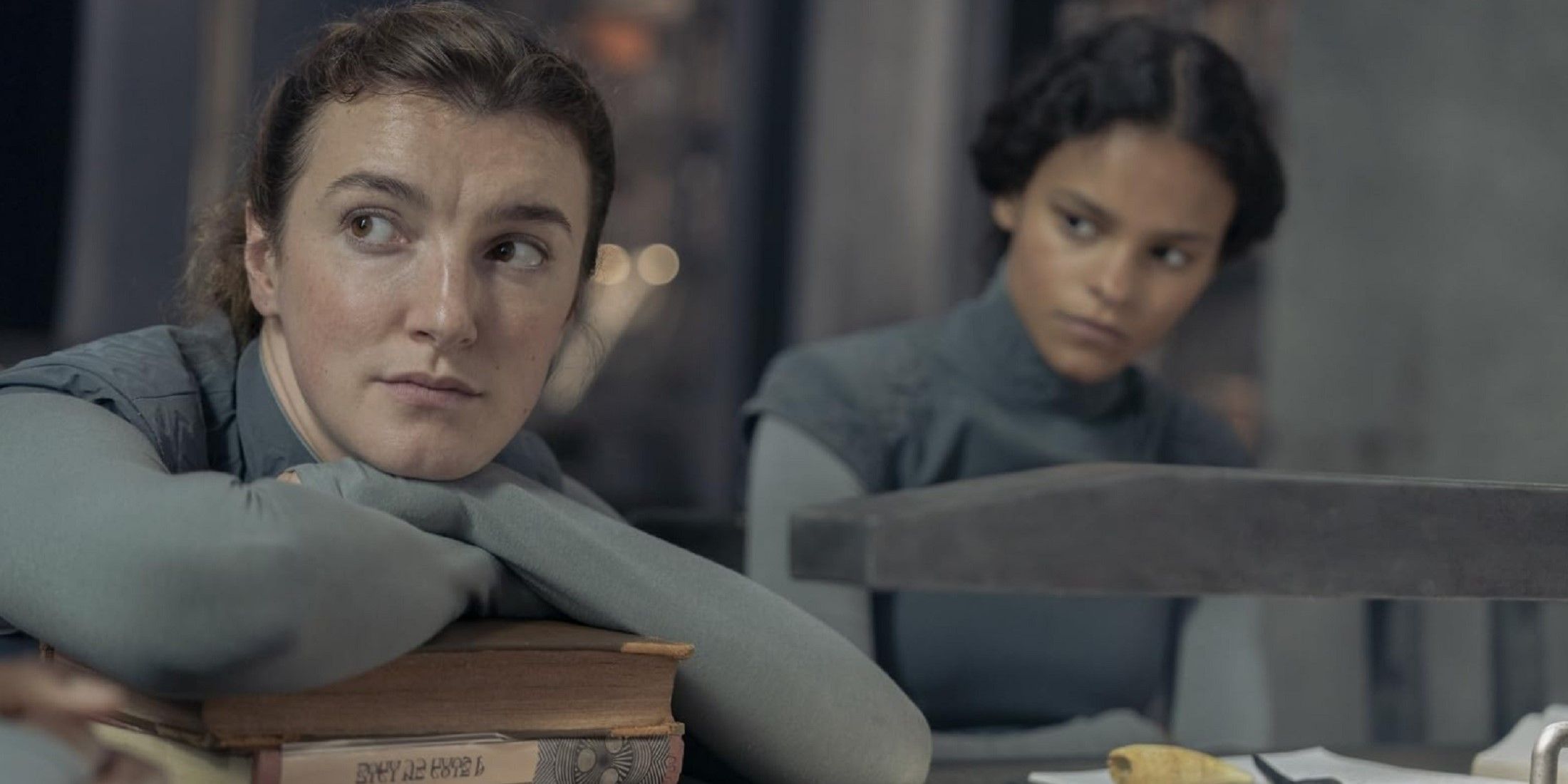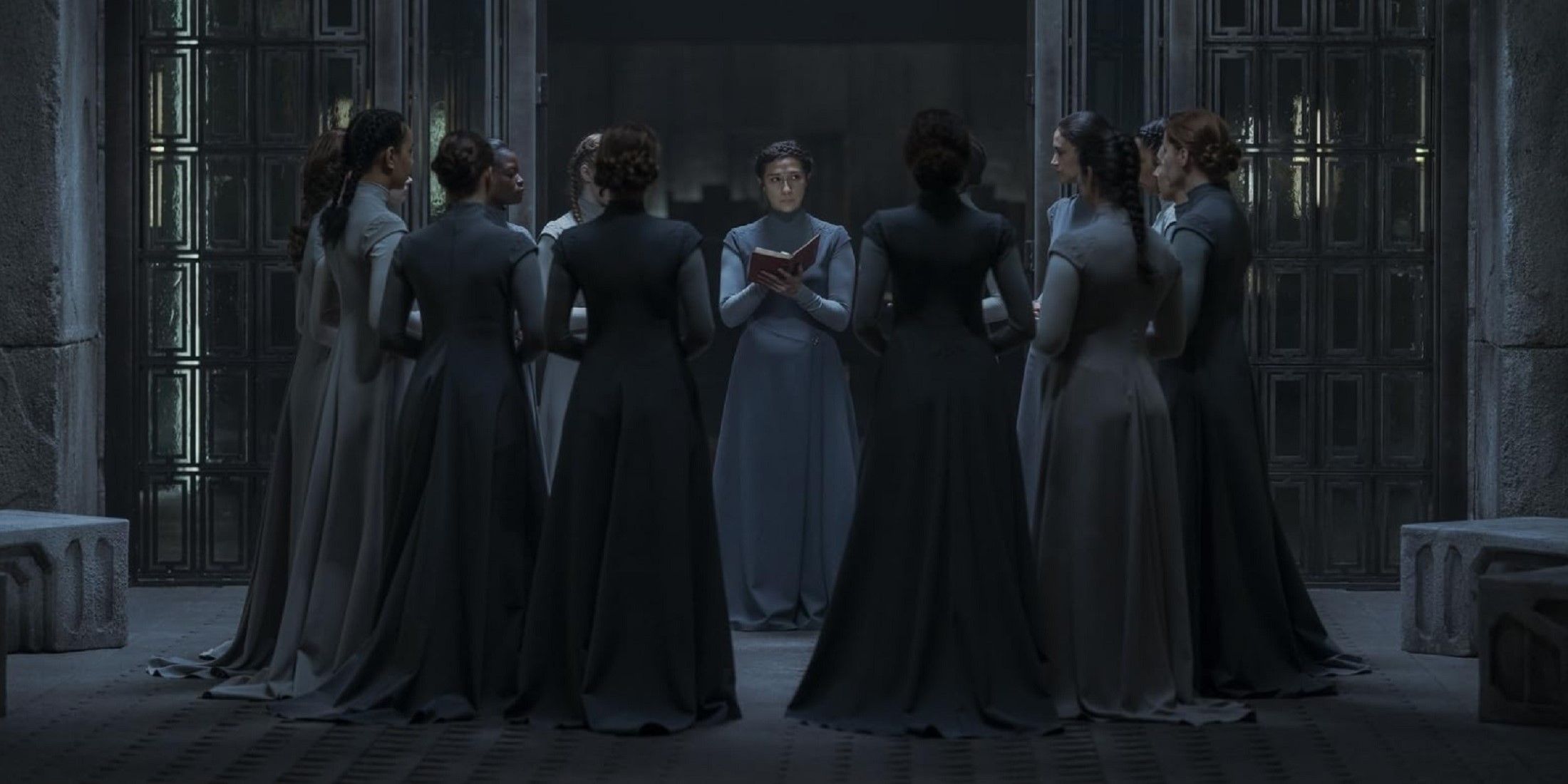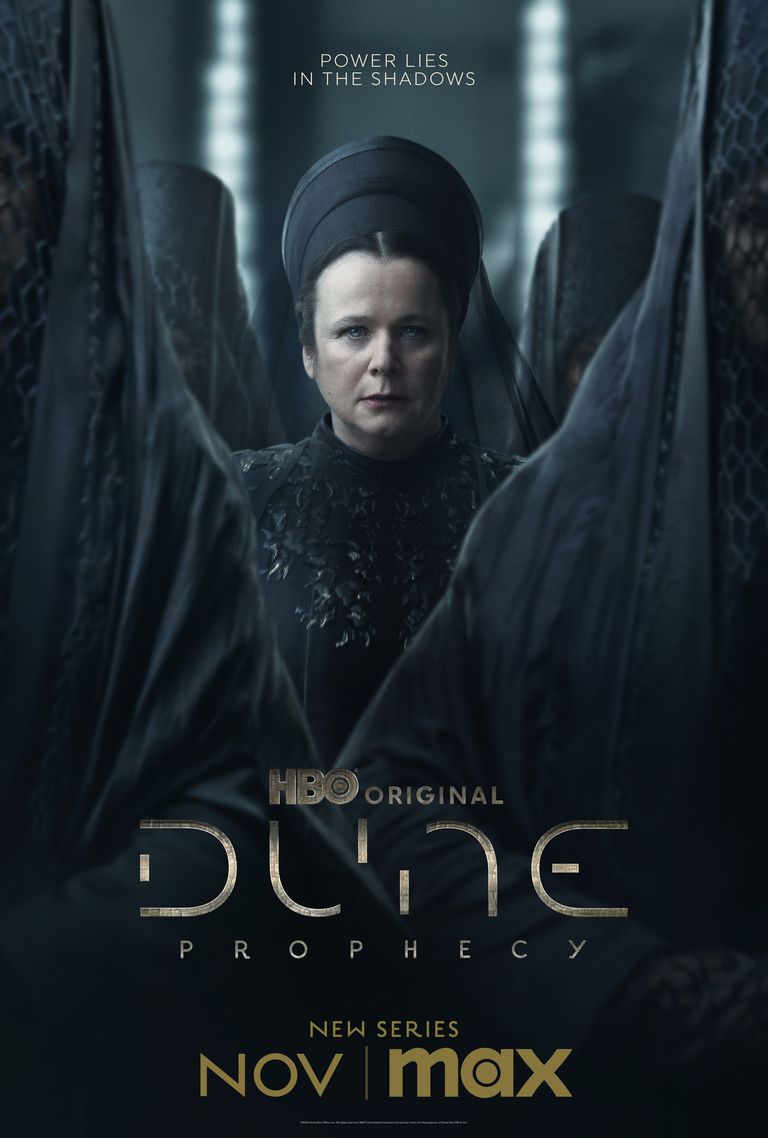On the outside, Dune: Prophecy’s Bene Gesserit Sisterhood seems like a monolith. They wear the same uniforms, study the same subjects, and perform a unified role as Truthsayers for the various noble houses of the Imperium. But what does it truly mean to be loyal to a collective? Is there any way to remain faithful to oneself and one’s own goals while part of the Sisterhood? The first season of Dune: Prophecy explores these questions by portraying the Sisterhood through the eyes of both leaders and acolytes.

Related
Dune: Prophecy Actress Tabu Explains How Dune Sets Itself Apart From Other Science Fiction Media
Actress Tabu, who plays Sister Francesca in Dune: Prophecy, was drawn to the human stories that separate Dune from other science fiction tales.
The Sisterhood Faces A Major Decision That Tests Loyalty
Early in the first season of Dune: Prophecy, Tula Harkonnen (Olivia Williams) is left in charge of the Sisterhood while her sister, Mother Superior Valya, visits the imperial court. Tula is soon faced with a decision. Should she allow the young Sister Lila (Chloe Lea), with whom she has a “protective” relationship – in Lea’s own words – to undergo the dangerous Agony ritual, which could kill her but would provide the Sisterhood with valuable knowledge? Or should she keep Lila safe?
The question soon causes many within the Bene Gesserit organization to take sides. Sister Jen (Faoileann Cunningham) chooses individuality, encouraging Lila to stand up for herself. Cunningham explained that she kept Jen an individual figure in such a collectively loyal group by “embracing the reality of what [she] was feeling on a given day.” On the other hand, the fanatical, martyrdom-focused Sister Emeline (Aoife Hinds) is steadfastly convinced that Lila’s loyalty to the Sisterhood should win out over her individual fears. Describing Emeline’s outlook on the situation, Hinds compared the character to Joan of Arc, saying that she saw being “a missionary who sacrifices her life for the greater good” as a noble and worthy calling.
The Bene Gesserit Collective Slowly Fractures
Over the course of the season, the unified collective of the Bene Gesserit gradually fractures – sometimes slowly, sometimes all at once. Valya and Sister Theodosia (Jade Anouka) leave to pursue their own goals. Sister Francesca (Tabu) feels torn between her identity as a Sister and her love for Emperor Javicco (Mark Strong), and Tula cracks under the pressure of living up to Valya and guiding the Bene Gesserit through one of its darkest hours. Compare Emily Watson’s Valya confidently defining the Sisterhood’s purpose in a pre-series interview:
“We discern truth from lies, and that is our function – to set the world, the universe, on its rightful path. But then, those truths are a commodity and can be used to manipulate players all over the chess board.”
to Olivia Williams’ Tula giving her thoughts on the Bene Gesserit in a post-series finale conversation:
“[It’s] this terrible time…they’re all having this nightmare, and it feels like the place is falling apart. [It’s] a decaying girls’ school in a time of crisis.”
By the end of the first season of Dune: Prophecy, every member of the Bene Gesserit has their faith tested in big ways and small. Lila loses much of her identity through the Agony. Emeline and Jen are left questioning if their previous outlooks on loyalty to the Sisterhood were correct. Tula and Valya both find their paths pointing away from the Bene Gesserit due to the actions of soldier Desmond Hart. Even the Bene Gesserit’s breeding program, destined to one day create the Kwisatz Haderach, is in danger. The question of loyalty – to oneself or to a collective – hangs in the balance as the first season of Dune: Prophecy concludes, and will likely be examined further in the second season, which has been officially confirmed by HBO.















Leave a Reply